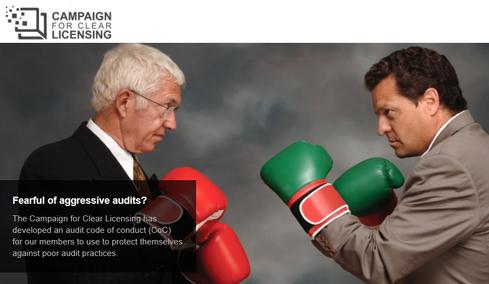Oracle Must Reform, Says Software Licensing Group
Oracle gets poor marks on audit and licensing practices, according to the Campaign for Clear Licensing, so the group is calling for change.


CES 2015 Preview: 8 Hot Trends
CES 2015 Preview: 8 Hot Trends (Click image for larger view and slideshow.)
Oracle must improve trust and communication with customers, and it needs to help educate and proactively assist its customers with licensing training and management practices.
These are among the recommendations offered by the Campaign for Clear Licensing (CCL) in an open letter, published Tuesday, to Oracle executive chairman Larry Ellison and the Oracle board. Founded in 2014, the CCL is a not-for-profit, member-supported UK organization that bills itself as a champion of clear licensing terms, manageable license programs, and the rights of business software buyers.
The open letter is a followup to a scathing report published by the CCL in November that found that 92% of customers say that Oracle does not clearly communicate licensing changes. The report is based on a survey of more than 100 Oracle customers worldwide, including six of the 100 largest companies on the London Stock Exchange.
[Want more on license optimization and audit survival strategies? Read Software Licensing: Move From Defense To Offense.]
An Oracle spokesperson declined to comment on the CCL letter, which predicted that Oracle will struggle to move to the cloud unless it changes its ways. Its licensing terms and changes are "poorly communicated," and audit requests are "often unclear and difficult to respond to," according to the letter. "With just 5% of [Oracle] revenue deriving from cloud services, you have a long way to go before cloud becomes a major part of your business, and we believe there are significant challenges to overcome along the way. Not least of all is overcoming the deep-rooted mistrust of your core customer base as a result of your auditing and licensing practices."
Oracle also declined to comment on the CCL's November report, "Key Risks In Managing Oracle Licensing," which uncovered overwhelmingly negative perceptions of Oracle audit practices, Oracle License Management Services (LMS), and Oracle communications regarding licensing changes.
On auditing: Only 2% of respondents "strongly agree" and 10% "agree" with the statement: "Oracle audit requests are clear and easy to manage respond to," while 44% "disagree," and another 44% "strongly disagree."
On Oracle LMS: No respondents "strongly agree" and 22% "agree" with the statement: "Oracle LMS has been helpful during the audit, contract renewal, and negotiation process," while 41% "disagree," and 37% "strongly disagree."
On communication: Only 2% of respondents "strongly agree" and 5% "agree" with the statement: "Communication from Oracle regarding licensing changes has been clear and straightforward," while 46% "disagree," and another 46% "strongly disagree."
A few of the seven recommendations for Oracle reforms outlined in the CCL letter included establishing one voice of authority on all licensing matters, creating a well-organized knowledge base on licensing terms, and establishing clearer communications on audit activities and expectations. The CCL also called on Oracle to adopt its audit code of conduct, which outlines principles that vendors and customers alike should follow when licensing software.
The fledgling CCL currently draws its membership from Europe, but it has plans to extend its reach to North America. To that end, it's planning a Jan. 29 workshop in New York on "Managing the Complexity of your Oracle Licensing Agreements." Among the speakers will be Christof Beaupoil, president of the software license optimization vendor Aspera Technologies, and Oracle Licensing consultant Craig Guarente of Palisade Compliance. Both executives shared their advice in recent InformationWeek reports on license optimization and audit survival strategies.
Apply now for the 2015 InformationWeek Elite 100, which recognizes the most innovative users of technology to advance a company's business goals. Winners will be recognized at the InformationWeek Conference, April 27-28, 2015, at the Mandalay Bay in Las Vegas. Application period ends Jan. 16, 2015.
About the Author(s)
You May Also Like
How to Amplify DevOps with DevSecOps
May 22, 2024Generative AI: Use Cases and Risks in 2024
May 29, 2024Smart Service Management
June 4, 2024







